When you receive a donation from a generous supporter, it's essential to express your gratitude with a heartfelt acknowledgment letter. Not only does this reinforce the positive relationship between the donor and your organization, but it also highlights the impact their contribution will have on your charitable initiatives. In this article, we'll explore effective letter templates and tips to ensure your message resonates with sincerity and appreciation. So, let's dive in and discover how you can craft the perfect acknowledgment letter to make every donor feel valued!
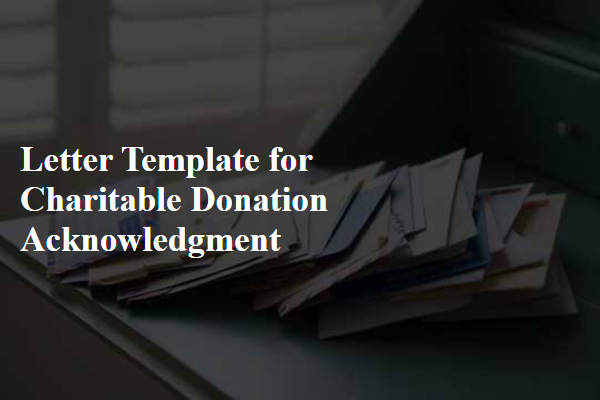
Donor's Information
Charitable organizations often express gratitude to donors for their generous contributions. A donor acknowledgment letter typically includes essential details such as the donor's name, address, and donation amount. Timely recognition following the donation enhances the relationship between the donor and the charity, fostering a sense of community and support for the organization's mission. The acknowledgment should also mention the date of the donation and specify the purpose of the funds, whether for a particular project, general operating expenses, or community outreach activities. Additionally, including the organization's tax identification number may assist donors in their tax deduction processes, ensuring compliance with IRS requirements.
Donation Details
Charitable donations play a vital role in supporting various causes and organizations. Acknowledgment letters serve as formal recognition of these contributions. A typical acknowledgment includes essential details such as the donation amount, date of the donation, and purpose of the funds. For instance, a donation of $500 made on March 15, 2023, to the local food bank assists in providing meals to families in need within the community. These letters often emphasize the organization's mission and the impact of the donor's generosity. Additionally, including tax identification numbers and receipt information ensures compliance with IRS regulations for potential tax deductions for donors.
Thank You Message
A charitable donation acknowledgment is crucial for fostering goodwill and encouraging future contributions. The acknowledgment message typically starts with expressing gratitude for the generous donation, emphasizing the impact it will have on the mission and activities of the organization, such as funding community programs or supporting specific projects. It often includes details about how the funds will be utilized, mentioning key initiatives or events that directly benefit from the donation, like providing meals for the hungry or offering scholarships for students. Additionally, it is common to reference tax information, highlighting the organization's 501(c)(3) status, which ensures the donor their contribution is tax-deductible, providing transparency and assurance. Overall, the message should evoke a sense of community and partnership, inviting the donor to continue their support and engagement with the organization's ongoing efforts.
Tax-Deductible Statement
Charitable donations provide essential funding for non-profit organizations, significantly impacting community services, like food banks and homeless shelters. Acknowledgment letters serve as a formal recognition of contributions, outlining the donation amount and purpose, crucial for tax records. For donors, tax-deductible statements outline compliance with IRS regulations, ensuring contributions exceed the minimum threshold of $250. These letters typically include the organization's name, address, and the date of the donation, emphasizing the non-profit's commitment to transparency and stewardship. Effective communication in these statements reassures donors of the positive change facilitated by their generosity, fostering ongoing support for future initiatives.
Future Engagement Opportunities
Future engagement opportunities in charitable organizations often hinge on community events and volunteer programs. Nonprofit events, such as fundraising galas or awareness workshops, serve as platforms for donors to interact with beneficiaries and fellow supporters. Volunteers at local shelters (like the Helping Hands Shelter) can contribute directly to community welfare while expanding their networks. Additionally, online campaigns, such as Giving Tuesday, encourage donations through social media engagement, maximizing outreach potential. Regular newsletters highlighting upcoming initiatives can enhance donor involvement, fostering a deeper connection between the organization and its contributors.

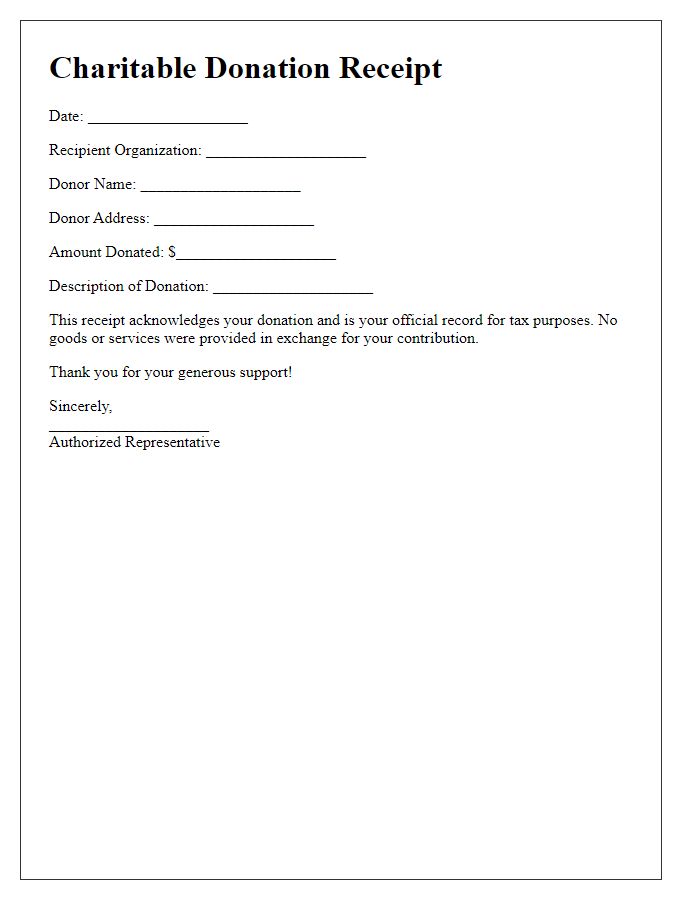
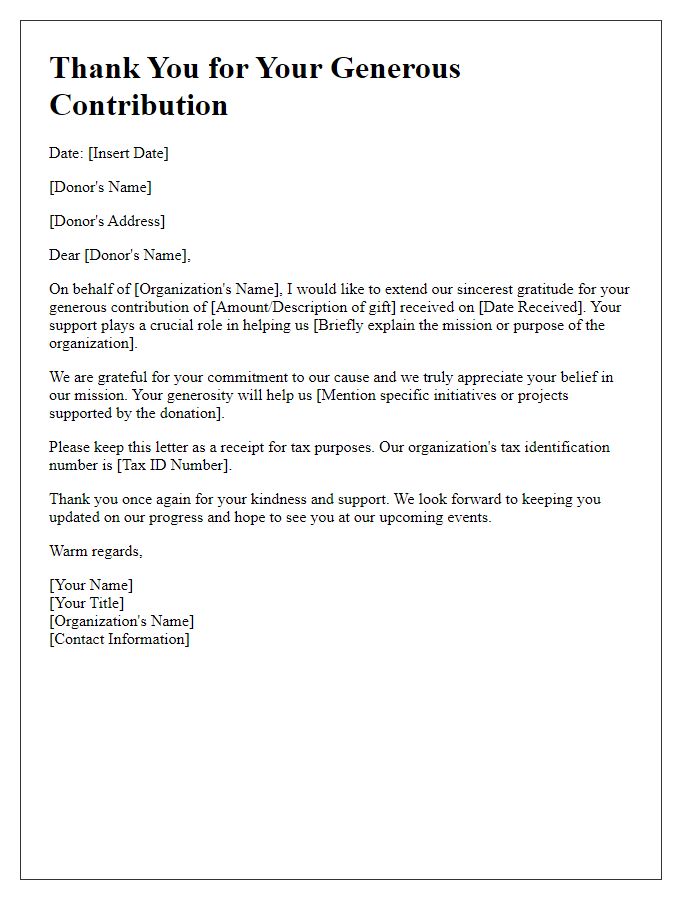
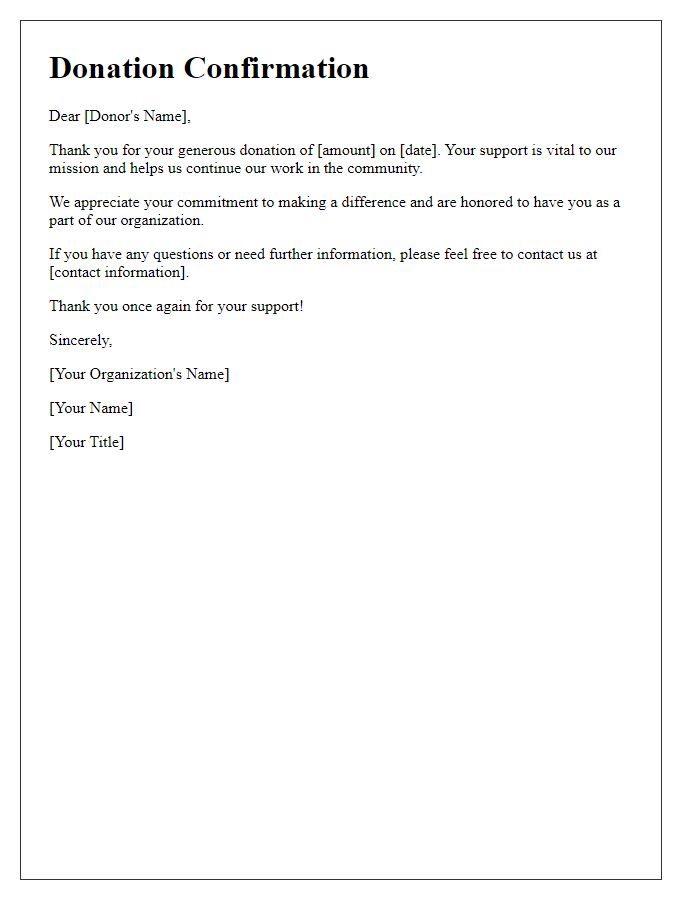
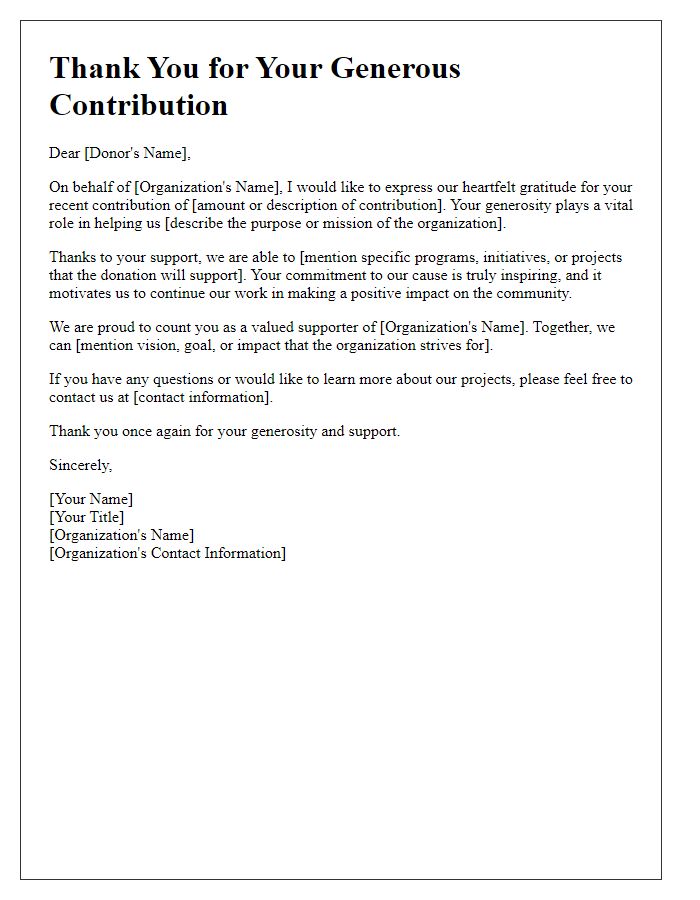
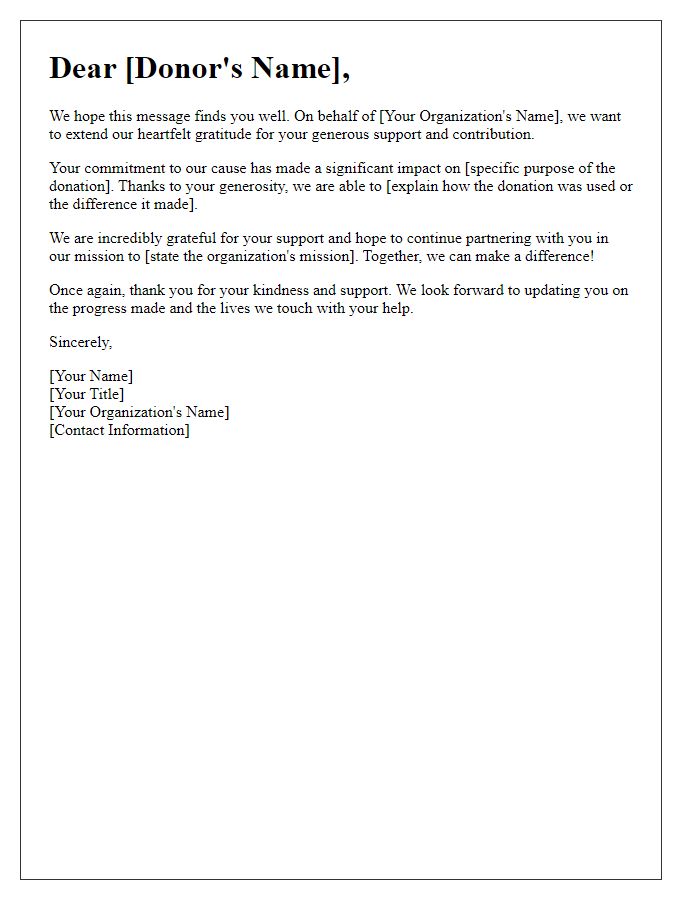
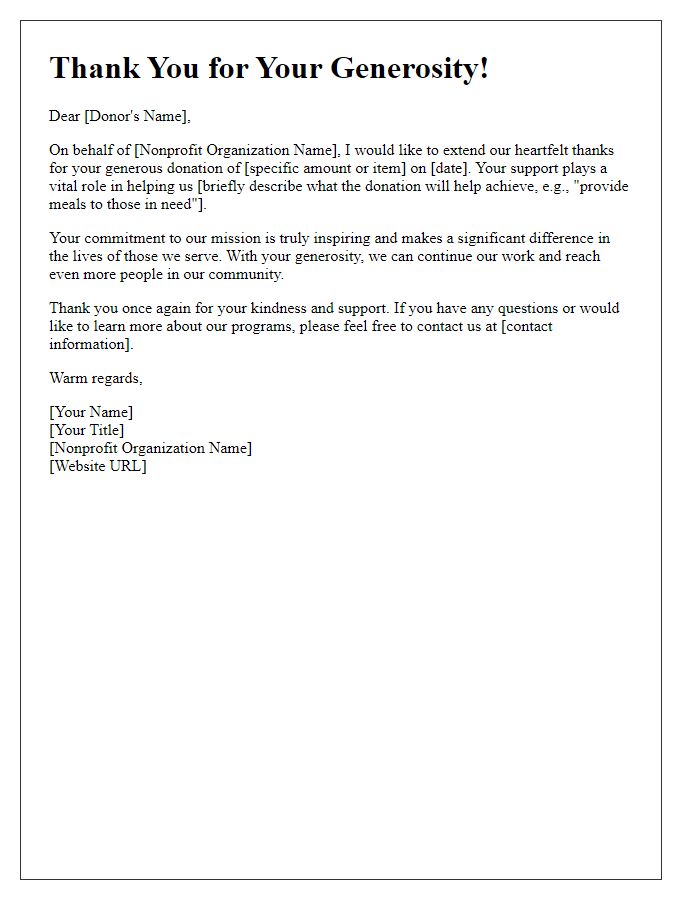
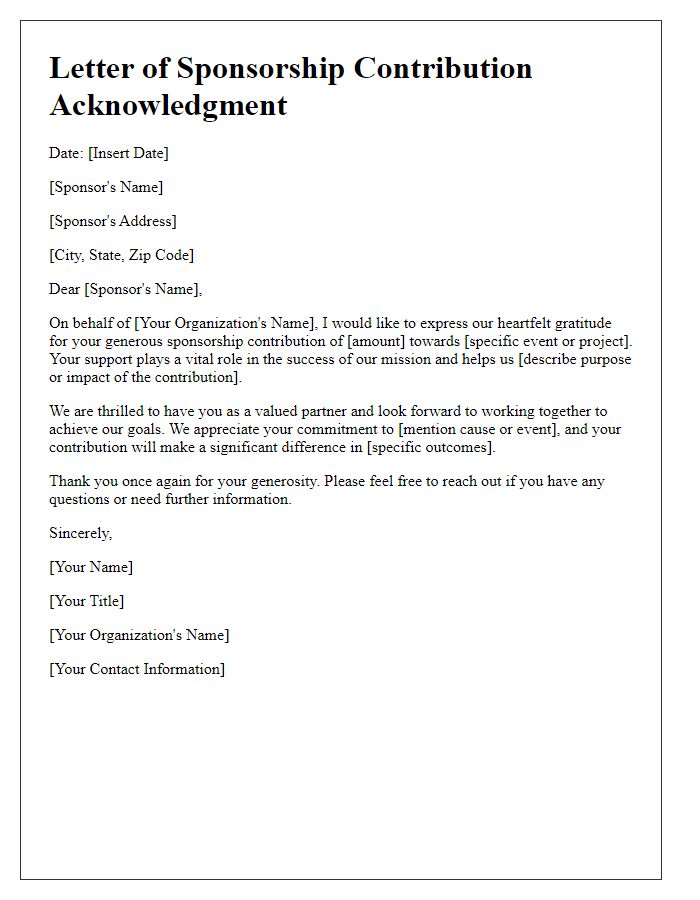
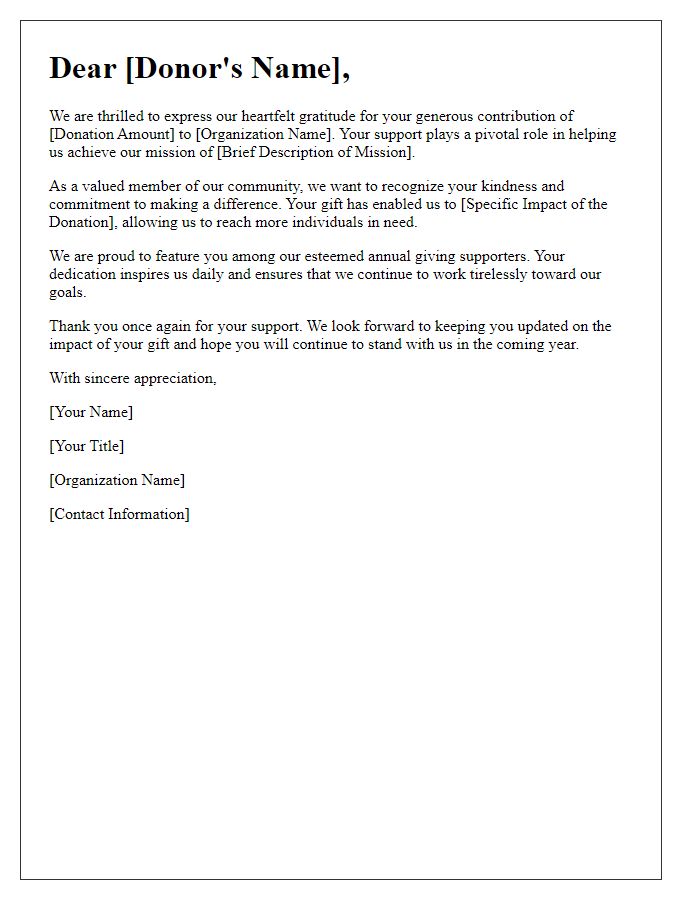
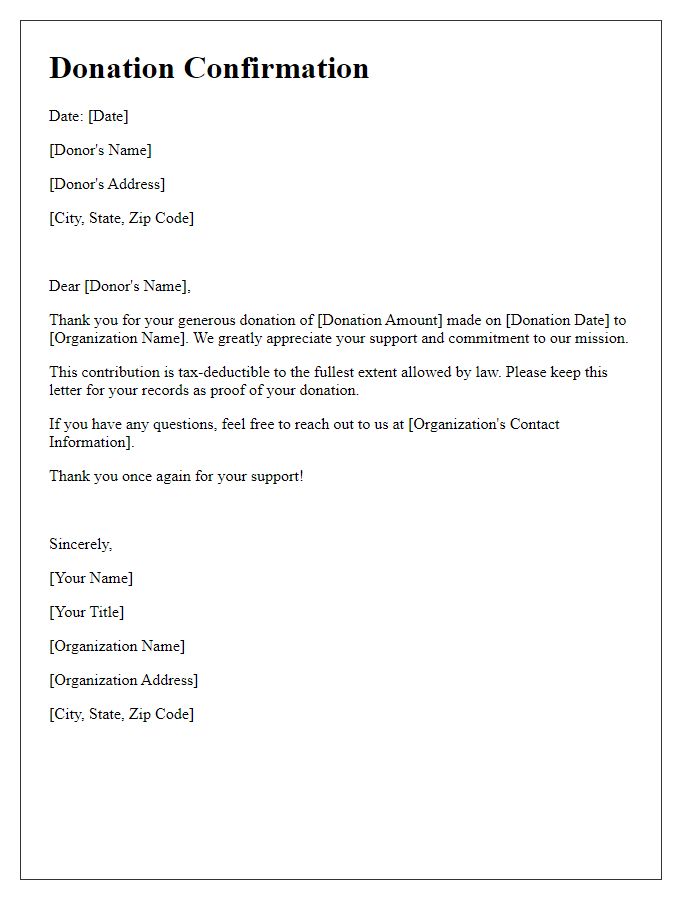
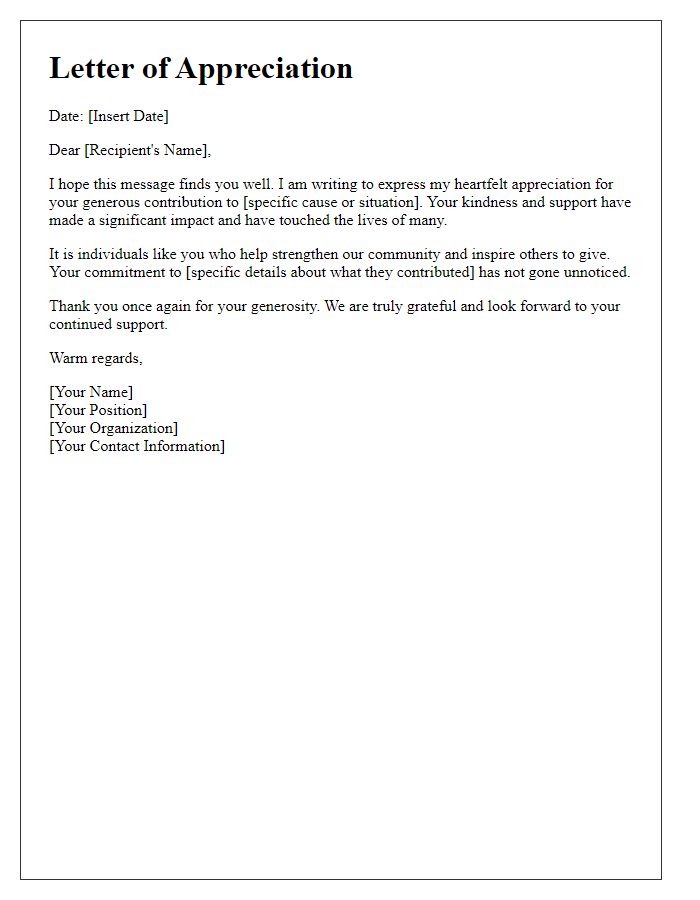

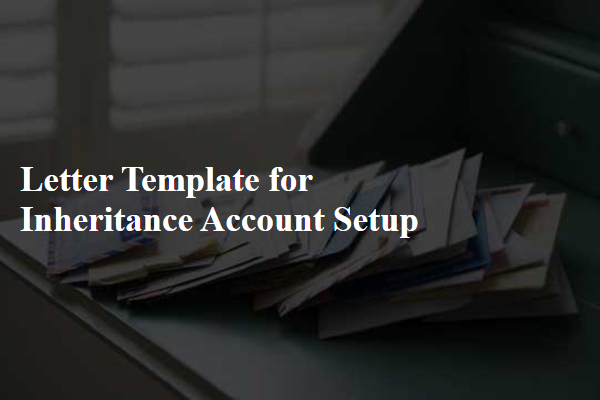
Comments